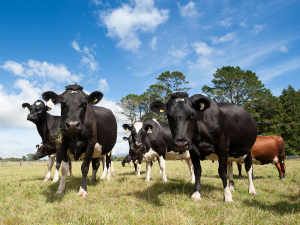DairyNZ Calls for Changes to Government’s Proposed Resource Management Act Reform
DairyNZ says the Government’s proposed Resource Management Act reform needs further work to ensure it delivers on its intent.
 In 2023, 74% of farmers implemented at least five good management practices to support their cows and manage winter conditions.
In 2023, 74% of farmers implemented at least five good management practices to support their cows and manage winter conditions.
Results from DairyNZ’s nationwide survey revealed that dairy farmers have continued to focus on wintering well and caring for their animals and land, regardless of the conditions.
DairyNZ lead advisor Justin Kitto says he is pleased to see that the wintering survey showed significant improvements in wintering practice on previous years.
He says that in 2023, 74% of farmers implemented at least five good management practices to support their cows and manage winter conditions.
“Importantly, 96% of farmers also said they had strategies to provide comfortable lying conditions,” Kitto says.
“These findings emphasise what we have seen previously – that farmers use a range of tactics to care for cows over winter,” he says. “These strategies include shifting them to a drier, lower risk paddock, or using crops positioned in drier and more sheltered areas for grazing during bad weather.”
Other strategies used to minimize mud and improve lying conditions include back fencing (temporary fences to protect previously grazed areas), portable troughs, providing extra straw as a dry bedding material and moving the break fence multiple times a day.
The survey also saw a significant increase in the number of farmers with a written wintering plan, increasing to 80% of respondents.
“These are important findings as written plans help to identify environmental risks and encourage thinking around keeping cows comfortable and healthy,” Kitto says.
“It helps ensure that the right decisions are made at critical stages over winter, especially during significant weather events, or during long periods of rain.”
Kitto says farmers with written wintering plans also implemented more good practices to look after cows and the environment compared to those without a written plan.
Farmers have also focused on ensuring calves are born in the best conditions, moving cows off-crop around two weeks before calving date.
“Many farmers put cows in mobs based on calving dates to help them better monitor and manage herds,” Kitto says. “Daily checks then provide the opportunity to identify any issues and those getting ready to calve, so farmers can give them the best outcomes.”
“Winter weather can be cold and unpredictable, so dairy farmers know they need to care for stock right through to the end of winter.”
Additionally, the results showed that 98% of farmers had stock excluded from waterways, while 94% had a buffer around their waterways to filter contaminants before they reach a waterway.
“Farmers should be proud of the work they are doing to improve their winter management for the best outcomes for their animals and the environment. The work is being recognised, with regional councils and MPI complimenting farmers on their dedication and progress,” Kitto concludes.
Budou are being picked now in Bridge Pā, the most intense and exciting time of the year for the Greencollar team – and the harvest of the finest eating grapes is weeks earlier than expected.
The Real Estate Institute of New Zealand (REINZ) has released its latest rural property report, providing a detailed view of New Zealand’s rural real estate market for the 12 months ending December 2025.
Rural retailer Farmlands has released it's latest round of half-year results, labeling it as evidence that its five-year strategy is delivering on financial performance and better value for members.
OPINION: "We are back to where we were a year ago," according to a leading banking analyst in the UK, referring to US president Donald Trump's latest imposition of a global 10% tariff on all exports into the US.
DairyNZ says the Government’s proposed Resource Management Act reform needs further work to ensure it delivers on its intent.
Overseas Trade Minister Todd McClay says he's working constructively with the Labour Party in the hope they will endorse the free trade agreement (FTA) with India when the agreement comes before Parliament for ratification.

OPINION: A mate of yours truly reckons rural Manawatu families are the latest to suffer under what he calls the…
OPINION: If old Winston Peters thinks building trade relations with new nations, such as India, isn't a necessary investment in…